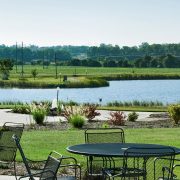Spring Activities that are Memory Care Assisted Living Friendly – Ashland, NE
It is important to manage the time spent in memory care assisted living in Ashland, NE, and everywhere, to make it a more enjoyable and comfy residence.
During the spring season, seniors must be able to find an interesting activity suitable for their ability. Here are some of the spring activities that are memory care assisted living friendly.
Spring activities for seniors
Sporting events
-
- An action-packed way for seniors to reconnect with one of their favorite pastimes is to attend a professional baseball game or a soccer game of a grandchild.
Fishing trip
-
- This activity is quite a suitable way to enjoy the outdoors even with mobility problems. Accessible fishing locations should be made available in your area where you can bring your loved one for a short trip to go fishing.
Tour a nearby location
-
- Some local sights can be a great venue for touring. You can take a boat trip or an RV to visit nearby locations to feast your eyes on some interesting sites near the memory care assisted living.
Fun beside the pool
-
- Others would want to enjoy low-impact water aerobics, while some would like to put a foot in the pool. If the senior is able and willing to spend some time by the pool, it will be fun to incorporate it with physical routines.
Stroll around
-
- Strolling can be a good way to enjoy the outdoors. A few short walks alone or with a walker or wheelchair will do the trick.
Attend community events
-
- Parades and fireworks often go together when attending community events. There are also many outdoor musical performances, car shows, and art shows that can make it more fun and enjoyable.
Feed the birds
-
- As soon as the birds begin to chirp, you will know that spring has finally arrived. That said, it also means that they wanted to be fed. Perhaps feeding them through a bird feeder can help seniors enjoy the outdoors in a more comfortable way.
Light gardening
-
- One of the great forms of exercise is gardening, as it can reduce the stress and improve the overall endurance and strength.
Spring cleaning
-
- If you want to get rid of the clutter in your memory care assisted living, doing some spring-cleaning activity is perfect. You may also want some help with one of your children or grandchildren, while sharing precious memories.
Importance of spring activities
There are a few ways to enjoy the warmer weather that comes with spring. However, just a simple appreciation of the outdoors and the sun can be a celebration that can bring a new sense of purpose to life.
If you think that your senior loved one deserves in-home care for seniors, you are actually doing him or her a favor. That is because older adults need quality care to enable them to live happier, healthier lives at a home environment.
So, don’t let Mother Nature have fun and enjoy the outdoors all alone. You can join her outside and start the springtime activities in a memory care assisted living today!
Looking for a trustworthy Memory Care Assisted Living facility in Ashland, NE? Click here to view our community page and learn what Ox Bow Living is all about!
Oxbow Living offers Assisted Living & Memory Care out of Nebraska and to the Surrounding Cities: Ashland, South Bend, Greenwood, Murdock, Elmwood, Ithaca, Mead










